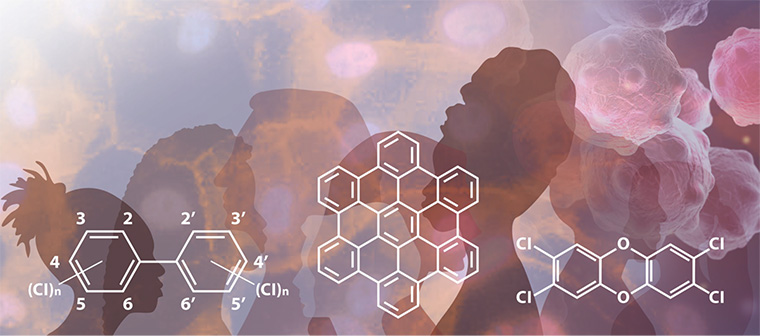Wednesday, August 24 – Thursday, August 25, 2022

Background
Breast cancer represents an enormous public health burden worldwide. The condition is influenced by multiple risk factors, including well established ones such as reproductive history, obesity, and BRCA1/2 gene mutations. In addition, a variety of environmental exposures — for example, air pollution, dioxins, polychlorinated biphenyls, polycyclic aromatic hydrocarbons, and organic solvents — have been associated with increased breast cancer risk. More than 200 chemicals have demonstrated increased mammary gland tumors in at least one animal study. However, epidemiological studies aimed at establishing causality have been challenged by the latency period between exposure and disease, differences in susceptibility, and the complexity of exposures involving ubiquitous and often persistent environmental chemical mixtures.
Workshop Objectives
This workshop was built on previous NIEHS efforts to understand the health effects of mixtures and bring together experts to discuss the state of the science of environmental chemical mixtures and breast cancer. Experts described the current state of breast cancer research, highlighting cell-based models, animal models, 3-D tissue culture models, epidemiological studies, and approaches for prevention and intervention. Participants sought to determine what research questions and data are needed to improve our understanding of how environmental chemical mixtures influence breast cancer. The workshop resulted in a commentary defining the critical research needs and promising approaches for filling data gaps associated with the interaction of environmental chemical mixtures and breast cancer. Along with the commentary, participants were encouraged to develop complementary publications highlighting the topics described during the workshop. Throughout the preplanning and workshop, opportunities for cross-divisional collaboration on the topic of environmental mixtures and breast cancer were explored.
Trainee Lightning Talks
The workshop included a session to highlight research from trainees in the form of lightning talks.
Breakout Sessions
The workshop included opportunities for networking and discussion in the form of breakout sessions. Participants were be able to select from the following groups:
- Breakout Group #1: Methods for data management and analysis and tools.
- Breakout Group #2: Methods for analysis of biomarkers and in vitro or in vivo studies.
- Breakout Group #3: Bringing cohort data and health information together.
- Breakout Group #4: Research translation, communication, prevention, and intervention.
Questions for Breakout Groups:
- What are the challenges associated with your group’s topic?
- What do you see as the low-hanging fruit? What can be addressed sooner rather than later?
- Where do we need to place resources on your topic to move research on breast cancer and mixtures forward (i.e., priority setting)?
- What are perceived limitations, and how would overcoming them move the field forward?
- How do we promote translation of research findings (e.g., to other fields of science, to policymakers, to interventions, to move from bench to practice)?
- What are other examples (or good case studies) from other fields that we can use to apply to this topic?
- How can we better integrate experts on basic science, data science, the exposome, and epidemiology to address complex questions?
Privacy Act Statement
The primary use of the collection of your name and email address is for providing the webinar link and information, communicating about the workshop, and/or for individual follow up after the workshop. If you do not provided this information, you were not be able to participate in the workshop. Collection of this information is authorized under 42 U.S.C. 203, 241, 289l-1 and 44 U.S.C. 3101, and Section 301 and 493 of the Public Health Service Act. The Privacy Act System of Records Notice (SORN) that covers collection of this information is 09-25-0156 Records of Participants in Programs and Respondents in Surveys Used to Evaluate Programs of the Public Health Service, HHS/PHS/NIH/OD and 09-90-1901 HHS Correspondence, Comment, Customer Service, and Contact List Records.
Planning Committee Members
Planning Committee Members:
- Danielle Carlin, NIEHS/DERT, Co-Chair
- Alexandra White, NIEHS/DIR, Co-Chair
- Brittany Trottier, NIEHS/DERT
- Abee Boyles, NIEHS/DERT
- Curt Dellavalle, NCI
- Suzanne Fenton, NIEHS/DNTP
- Tram Lam, NCI
- Cynthia Rider, NIEHS/DNTP
- Gary Ellison, NCI
- William Suk, NIEHS
Questions?
For questions about the workshop content, please contact Danielle J. Carlin at 984-287-3244. For logistical questions, please contact Courtney Gunderson at 703-765-0060, ext. 107.


